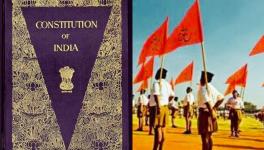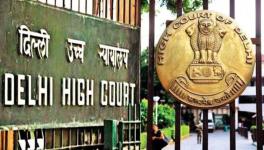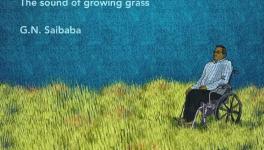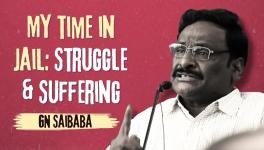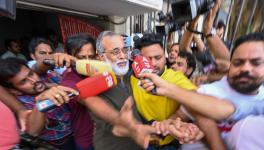Amendments in Security Legislation and Administrative Tweaks Towards Centralisation

The Unlawful Activities (Prevention) Act Amendment Bill was met with protests from the opposition on July 8. The proposed amendments were labelled as ‘draconian’. However, the proposed amendments to three important and related legislations can give one an insight into the administrative changes that one can expect. The proposed amendments to the National Investigation Agency Act, 2008 (NIA Act); The Unlawful Activities (Prevention) Act, 1967 (UAPA); and The Protection of Human Rights Act, 1993 (POHA) show a discernible trend towards centralisation.
UAPA Amendments
The UAPA was initially enacted to deal with ‘unlawful activities’, which in the original legislation, meant activities that were either intended or supported secession or even would cause ‘disaffection’. ‘Terrorist activities’ was later added to the Act through an amendment. The proposed amendment that has gained the most traction is that of designating individuals as ‘terrorists’. In one sense, it is a logical step considering the phenomenon of a ‘lone wolf’ attack. However, such attacks do not appear to have occurred in India. Further, given the present regime’s de facto position on certain groups, this amendment is one that is liable to abuse.
The commitment to Hindutva ideology while paying lip service to development and the economy is one facet of the present regime that has manifested itself in terms of attacks on dalits, adivasis and Muslims. Further, those who raise their voices against these acts of violence which are in contradiction to the Constitution, oftentimes end up being labelled as ‘radical Islamists’, or the new catchy term, ‘urban Naxal’. Invariably, without affiliation, these citizens who dare to raise their voice may in all probability find themselves designated as ‘terrorists’.
The proposed amendment to section 25 of the UAPA innocuously transfers power from the state police force to the National Investigation Agency (NIA). The existing section lays down that the investigating officer (IO) should receive permission from the Director General of Police in the respective state before confiscating property which he believes are the proceeds of terrorism. The amendment now allows for a situation wherein if the investigation is being conducted by the NIA, the permission has to come from the Director General of the NIA. This may result in a situation where the left hand does not know what the right hand is doing.
The issue with how the state has tackled instances of political violence is that it appears haphazard. The overlapping of agencies that have jurisdiction to tackle or investigate such violence can only result in confusion for all those involved. It would make more sense to create a separate agency solely to deal with extra-Constitutional political violence at several levels including dialogue.
NIA Act Amendments
The main criticism of the NIA Act when it was first passed in 2008 – following the 26/11 attack – is that there is a strong centralising tendency inherent in the Act. This criticism was dismissed on the grounds that in the event of an attack similar to 26/11, procedural red tape would only get in the way of a speedy investigation. Since its inception, the NIA has investigated ‘terror funding’, bomb blasts and insurgent groups. The NIA Act does not empower the agency to make arrests – that is the job of the police – neither does it empower the NIA to prevent a crime. The NIA can only investigate and prosecute an offence under an Act listed in the Schedule to the NIA Act.
What is interesting about the proposed amendments to the NIA Act is that the government seems intent on emulating its perception of Israel or the USA without any of the necessary infrastructure in place. For example, in section 1, which lays down where the Act shall apply, an additional clause is sought to be added i.e. the Act will be applicable “(d) to persons who commit a Scheduled Offence beyond India against the Indian citizens or affecting the interest of India.” This amendment is also supported in another proposed amendment to Section 6 wherein it will be at the discretion of the Union government whether the NIA ought to investigate an attack outside India or not. This amendment is unlikely to go down well with many countries, particularly those with whom India does not have pleasant relations. Unless India suddenly develops serious diplomatic clout, it is unlikely that this section will ever be invoked except for a charade once the perpetrators of a crime have been caught by the government of the country where the crime has occurred.
However, among these cosmetic amendments, the real issue arises with the deletion of subsections (3) to (7) of section 11. These clauses deal with the appointments to be made to the special courts created under the Act. The existing provisions make all the appointments of Judges by the Union government subject to the recommendation of the Chief Justice of the concerned High Court. This has arisen due to another amendment to designate Sessions Courts to hear NIA cases rather than constitute Special Courts. Hence, the already burdened legal system will get bogged down by additional NIA cases in the Sessions Courts which are empowered to hear any matter from a property dispute (depending on the value of property) to a murder case.
POHA Amendments
The bulk of the proposed amendments to the POHA concern bringing other Acts and agencies under its ambit such as; the National Commission for Backward Classes, the National Commission for Protection of Child Rights and the Chief Commissioner for Persons with Disabilities. However, among these amendments the administrative amendments require some attention.
Firstly, if passed, the head of the National Human Rights Commission (NHRC) will no longer be a “Chief Justice of the Supreme Court” and instead can be “the Chief Justice of India or a Judge of the Supreme Court”. The cosmetic icing on the cake is that the amendment to section 3 (Constitution of NHRC) will compulsorily include a woman member from “amongst persons having knowledge of, or practical experience in, matters relating to human rights”.
Secondly, the terms have been reduced from five years to three years. However, only the Chairperson is eligible for reappointment provided that the person has not crossed the age of 70. Thirdly, the Secretary who will be the Chief Executive Officer of the organisation will no longer discharge the powers and functions that the commission may delegate. Instead, the Secretary will do the bidding of the Chairperson of the commission. Hence, the appointment of the Chairperson and other members are decided by a six-member committee where the opposition has only two members. Thus, this amendment would centralise all the power in the Chairperson of the commission. The same has been replicated with regard to the State Human Rights Commissions (SHRC). Further, another proposed amendment has empowered the Union government to assign any SHRC the charge of a Union Territory, except the National Capital Territory of Delhi which will fall within the jurisdiction of the NHRC.
When looked at as a whole, these amendments will have a tendency to feed into each other. For example, persons who may be designated as terrorists under the amended UAPA and investigated by the NIA will invariably find themselves entwined in the backlog of cases pending in the Sessions Courts. If the person is actually not guilty of the concerned offence, the result will be a long wait until acquittal. Further, both the UAPA and the NIA Act make bail somewhat of a rarity for those without means. The centralising nature of the amended POHA will also add an additional burden, particularly if the concerned Chairperson is a political appointee.
Get the latest reports & analysis with people's perspective on Protests, movements & deep analytical videos, discussions of the current affairs in your Telegram app. Subscribe to NewsClick's Telegram channel & get Real-Time updates on stories, as they get published on our website.










